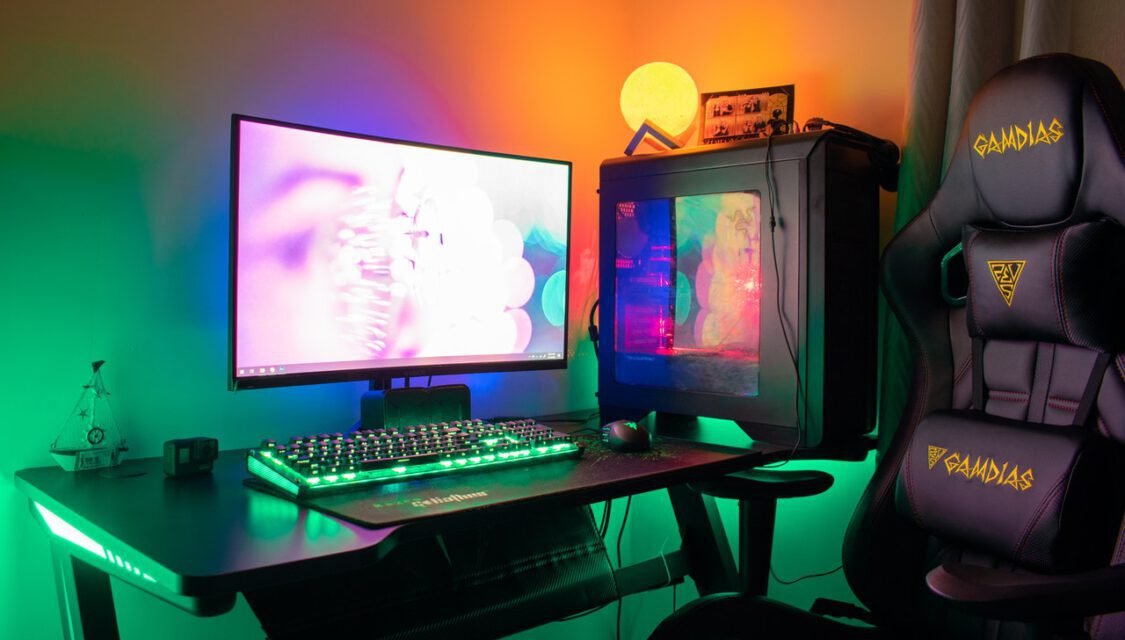In the dynamic landscape of computer technology, graphics processing units (GPUs) have emerged as the cornerstone of both gaming and professional workstations. The quest for the most powerful video cards spans various requirements and tasks, from immersive gaming experiences to demanding computational work. This guide delves into the top GPUs in the market, catering to diverse needs and applications.
The Most Powerful Video Cards for Gaming
For gaming enthusiasts, the power of a GPU is paramount. The market leaders, NVIDIA and AMD, have unleashed beasts like the NVIDIA GeForce RTX 3090 and AMD Radeon RX 6900 XT, known for their ability to handle ultra-high resolutions and intense graphical demands. These GPUs don’t just offer raw power but are also equipped with technologies like ray tracing, which enhances the realism in games. Additionally, models like the RTX 3080 and the Radeon RX 6800 XT provide a slightly more cost-effective solution without significantly compromising on performance.
- AMD Radeon RX 7900 XTX: Recognized as one of the best graphics cards for gaming in 2023, it offers outstanding performance for the most demanding games.
- Nvidia GeForce RTX 4080: Known for its exceptional performance in 4K gaming, this card is a favorite among enthusiasts who seek high resolution and detail.
- Nvidia GeForce RTX 4090: While particularly noted for video editing, the RTX 4090’s powerful capabilities make it a top choice for high-end gaming as well.
- AMD Radeon RX 7900 XT: This card shines in virtual reality (VR) applications, providing an immersive and smooth gaming experience.
- Intel Arc A750: Offering great value for its price, this card is a strong contender for gamers looking for a balance between cost and performance.
- Nvidia GeForce RTX 3060 Mobile: A leading choice for gaming laptops, it brings solid gaming performance to portable devices.
- Nvidia GeForce RTX 4070 Ti: Known for its support of DLSS 3, this card is a great option for gamers looking for advanced AI rendering capabilities.
- Nvidia GeForce RTX 4070: Excelling in 1440p gaming, it’s a strong option for gamers who want high-quality visuals without going to 4K.
- Nvidia GeForce RTX 3060 Ti: Considered the best graphics card under $500, it’s a solid choice for gamers on a budget who still seek strong performance
The Best Video Cards for Tasks
Professional-Grade GPUs: In the realm of video editing and 3D modeling, GPUs of the professional grade, notably NVIDIA’s Quadro series and AMD’s Radeon Pro line, are commonly selected. Their design focuses on delivering stability and accuracy, essential for handling complex rendering tasks, managing large video files, and executing detailed designs. A key feature of these GPUs is their ability to maintain color accuracy and rendering speed, even under the strain of intensive workloads. Such capabilities make them a go-to choice for professionals who require reliability and precision in their graphics processing tasks.
Memory and Bandwidth Considerations: High memory capacity and bandwidth are essential for professional tasks, as they enable the handling of large textures and datasets more efficiently. GPUs with substantial VRAM and high memory bandwidths are preferred in professional settings to ensure smooth operation during demanding tasks.
Certification and Compatibility with Software: For professionals, the importance of choosing a GPU that has been certified for the specific software in use cannot be overstated. Manufacturers such as NVIDIA and AMD frequently collaborate with software developers, optimizing their GPUs for specific applications. This results in enhanced performance and reliability for those applications.
Performance vs. Cost: Top-tier GPUs undoubtedly provide superior performance but at a higher cost. Professionals must weigh their performance needs against their budget constraints. It’s often found that mid-range professional GPUs strike a favorable balance, offering a satisfactory blend of performance and cost-effectiveness.
Graphics Cards for Computing
High-Performance Computing GPUs: GPUs like NVIDIA’s Tesla series and AMD’s Radeon Instinct are engineered specifically for high-performance computing tasks. These GPUs are not designed for rendering graphics but for processing large datasets and complex algorithms efficiently. They are widely used in research and industry for applications that require massive computational power.
Parallel Processing Strengths: A defining feature of these GPUs lies in their capacity for parallel processing. This attribute enables them to concurrently manage multiple calculations, thereby markedly accelerating the speed of data processing tasks. Such capabilities are especially beneficial in diverse fields, including bioinformatics, weather modeling, and quantum physics simulations, where simultaneous computations are integral.
Memory and Bandwidth Needs: For computational GPUs, high memory capacity and bandwidth are crucial. These GPUs are equipped with large amounts of VRAM and high bandwidths to handle large datasets and facilitate rapid data transfer, which is essential in fields like machine learning and big data analytics.
Specialized Architectures: GPUs for computing often have specialized architectures tailored to specific types of calculations. For instance, some are optimized for floating-point operations, which are common in scientific computing, while others might be tailored for tensor operations, crucial in deep learning.
What to Look for When Choosing a GPU
Choosing the right GPU can be daunting. Here are the key factors to consider:
- Purpose: Match the GPU’s strengths to your primary activities, be it gaming, professional work, or computational tasks.
- System Compatibility: Ensure the GPU fits physically in your case and is compatible with your motherboard and power supply.
- Performance Parameters: Look at memory, bandwidth, and processor cores. Higher numbers generally mean better performance.
- Price and Budget: High-end GPUs offer top-tier performance but can be pricey. Balance your budget with your performance needs.
- Future-Proofing: Consider how long the GPU will meet your needs. Technology evolves rapidly, so what’s top-of-the-line today may be outdated in a few years.
Conclusion
Selecting the right GPU is a balancing act between performance requirements, compatibility with existing systems, and budget constraints. Whether for gaming, professional applications, or computational tasks, the market offers a wide range of GPUs to fit various needs, which can be viewed here. Careful consideration of these aspects ensures that you invest in a GPU that not only meets your current requirements but also stands the test of time.



